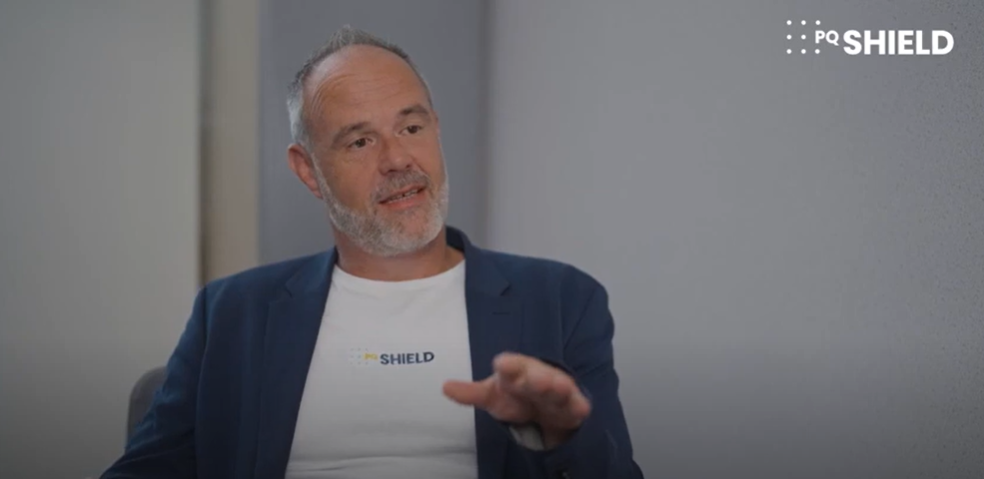PQShield’s Chief Strategy Officer on Cryptography’s New Era

Insider Brief
- PQShield’s Chief Strategy Officer, Ben Packman, highlights a shift in the post-quantum cryptography (PQC) conversation from focusing on quantum threats to cryptography modernization and compliance with new standards.
- Packman believes the term “post-quantum” is misleading and that the industry should focus on deploying next-generation cryptosystems rather than being solely concerned with quantum-specific risks.
- As PQShield leads in the field, the emphasis is on securing algorithms against evolving threats, ensuring cryptographic systems remain robust as technology advances.
Over the years, The Quantum Insider has closely followed the advancements at PQShield, a leading player in post-quantum cryptography (PQC). As the industry matures, the conversation around PQC has evolved from the nature of the quantum threat to the practicalities of deploying next-generation cryptography standards. Ben Packman, Chief Strategy Officer at PQShield, recently gave his thoughts on this transition, underlining a shift in focus towards compliance and modernization.
Packman addressed the role of quantum in the public discourse, questioning whether the term has been helpful or misleading.
“I believe that post-quantum cryptography is a bit misleading,” he said. “It has nothing to do with the algorithms that we are standardizing. It’s just the name of an era.” This era, he explained, began when the industry started taking quantum attacks seriously and explored new mathematical methods to defend against them.
However, Packman pointed out that the conversation should now move away from quantum itself.
“We’re in a phase where I’d like to just call them the next generation of public key cryptosystems,” he said, indicating that the focus should now be on the broader topic of cryptography modernization rather than the quantum-specific threat. This shift signals a growing maturity in the field, where the real challenge lies in deploying and complying with new cryptographic standards.
As PQShield continues to lead in this space, Packman stressed the ongoing need to adapt and secure algorithms against evolving threats.
“Like we do with classical methods, we have to tune the parameters and make sure that the algorithms are always secure against the newest types of attacks,” he noted. This vigilance, combined with a focus on compliance, defines the next phase for companies like PQShield.
In a world where the term “post-quantum” may no longer capture the full picture, PQShield is focusing on what really matters: ensuring that cryptography remains secure in the face of future technological developments. “It’s just a way to improve the algorithm,” Packman concluded, which stresses that the math behind the cryptography is what will ultimately drive the field forward.
Featured image: Credit: PQShield
